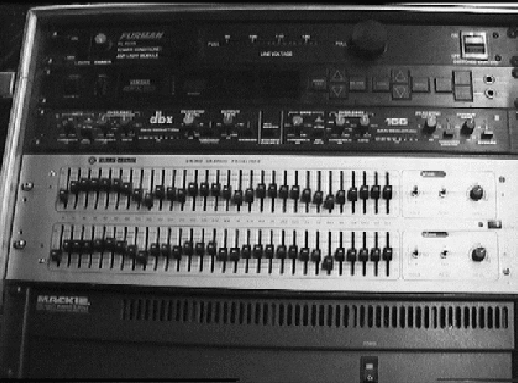
|

|
WPI Technical Theatre Handbook: Effects Processors | 
|
|
|
Next: Output Up: Signal Processing Equipment Previous: Noise Gates Contents Index Effects ProcessorsSpecial audio effects such as pitch shifting, reverberation, and delay are often desirable in a theatre application. Discrete reverb and delay units are common, but are often replaced with effects processors or multi-effects units, which can provide a number of audio effects in one box. There is no standard type of effects processor. Each offer a different number of effects, different sound quality, and a different user interface. Some common effects are listed below:
Effects processors can be used as inserts on channels or with aux sends. Aux sends are more commonly used because more than one channel can ``share'' an effect. Also it allows mixing of the wet and dry signals, which is very desirable in most cases.
Next: Output Up: Signal Processing Equipment Previous: Noise Gates Contents Index Steve Richardson 2000-07-06 Use of information in this document implies understanding and agreement with the copyright and terms of use. Specifically, no warranty is expressed or implied regarding the accuracy of the information contained within. YOU USE THIS INFORMATION AT YOUR OWN RISK. All trademarks are property of their respective owners. You must obtain permission from the author before using the contents of The Handbook for anything other than private use. |
Table of Contents
| ||
